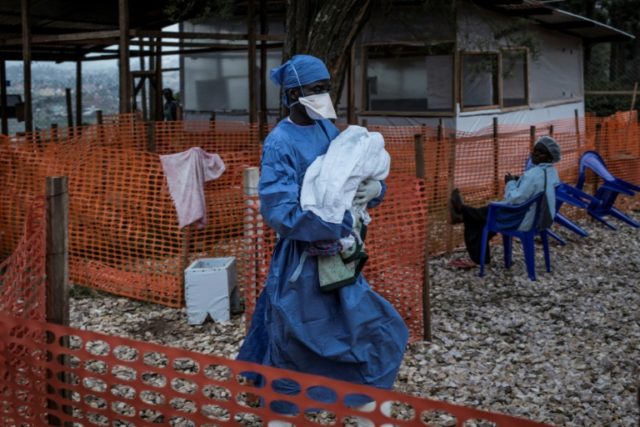Felix Tshisekedi, president of the Democratic Republic of Congo (DRC), found it necessary on Tuesday to assure rural citizens of his country that Ebola is “not an imaginary disease” and foreign aid workers are there to help.
“If we follow the instructions, in two or three months Ebola will be finished,” he pledged.
Tshisekedi spoke from the city of Beni in the eastern Congo, where he visited an Ebola treatment center. Political unrest and paranoia in the outbreak area have significantly hampered efforts to contain the current Ebola outbreak, which has killed over 800 people since last summer, becoming the second-worst recorded outbreak of the hideous disease.
Insurgents have violently attacked Ebola treatment centers and suspicious villagers have refused medical care, motivated by either tribal customs or propaganda that claimed aid workers are spreading the disease on purpose. Some believed the Ebola scare was a hoax concocted by the government to delay elections, eventually held last December, bringing opposition leader Tshisekedi into office as president.
“The time of armed groups is over,” Tshisekedi said on Tuesday. “The new government is reaching out to these children of the country to surrender arms through disarmament programs.”
The World Health Organization (WHO) decided last week against declaring the Ebola outbreak a global emergency, since it has been prevented from spreading into other countries, but expressed deep concern about the number of cases continuing to grow in affected areas. The risk of the outbreak escaping medical controls and spreading beyond the DRC’s borders was rated “very high.”
WHO Director-General Dr. Tedros Adhanom Ghebreyesus said another $104 million is needed to treat the outbreak, a figure that includes repairing the damage inflicted upon treatment centers and after-care facilities by attacks.
Doctors Without Borders (commonly known by its French acronym MSF) agreed with WHO’s concerns, stating it is “clear the outbreak is not under control and, therefore, we need a better collective effort.”
One of the biggest problems facing these organizations is Congolese distrust of doctors. MSF recommended bringing Ebola patients into regular treatment centers instead of specialized Ebola clinics because “it is very clear that people do not like or trust the Ebola centers and they are not coming to be treated.”
Doctors working in the DRC said this public mistrust is making it difficult to monitor the spread of the disease, since patients are literally hiding from them, and their still-infectious bodies are buried in secret by relatives after they die. They contradicted President Tshisekedi’s optimistic prediction and estimated it will take at least six months to bring the outbreak under control.

COMMENTS
Please let us know if you're having issues with commenting.